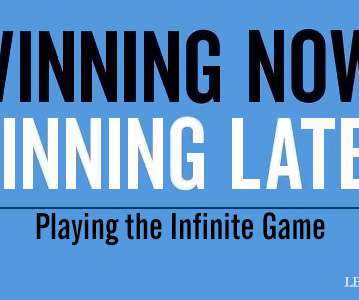Winning Now, Winning Later: Playing the Infinite Game
Leading Blog
JUNE 23, 2020
W HEN David Cote became CEO of Honeywell in February of 2002, the company was a train wreck. When he took over, Honeywell was plagued by short-termism. The problem was that he had to deliver something in the short-term to the investors for survival but had to set the company up for tomorrow too. He did both.





































Let's personalize your content